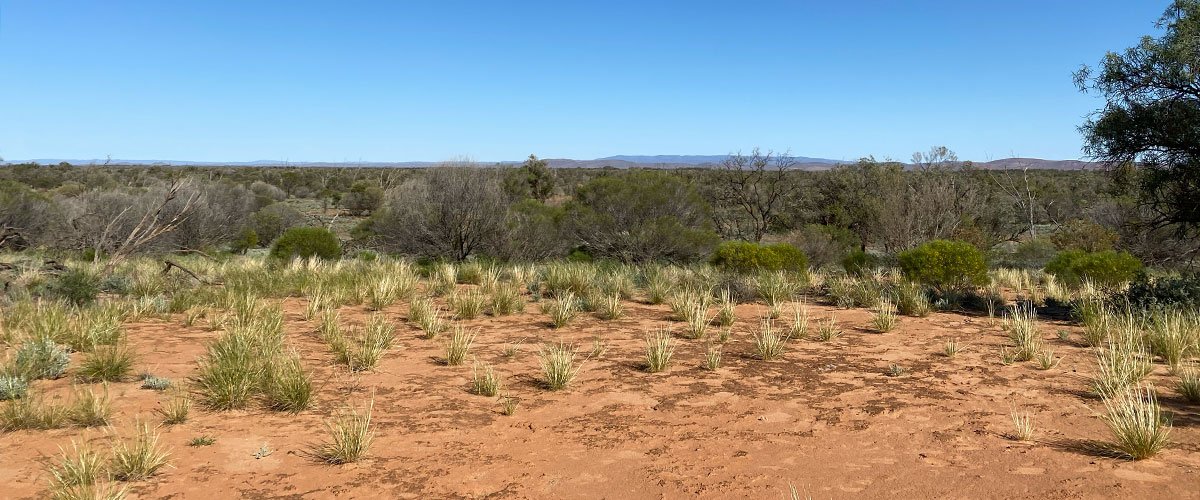Providing student research grants is a key feature of our Science and Knowledge program, where we assist students in progressing their post-graduate studies and careers.
The program encourages students in the ecological sciences and helps us understand our nature reserves better.
We are delighted to bring you this research report update from 2023 Nature Foundation Scientific Expedition Foundation RL & GK Willing Grant recipient, Rebecca Greening.
The impact of livestock grazing on fertile islands
- Rebecca Greening
- Nature Foundation Scientific Expedition Foundation RL & GK Willing Grant recipient
- Honours in Ecology and Environmental Science, The University of Adelaide
Despite the widespread use of livestock grazing in arid Australia, there are still large knowledge gaps regarding impacts to fertile islands. Fertile islands are areas of bioaccumulation in otherwise low nutrient arid zone landscapes and are imperative ecosystem function. To address this knowledge gap, Rebecca examined the relationship between a perennial shrub, Eremophila sturtii, soil nutrients, microbial communities, and livestock grazing. Soil samples were collected from a 98-year livestock grazing exclusion site and currently grazed land in arid South Australia. Environmental DNA analysis and soil nutrient tests were conducted, complimented by a greenhouse experiment.
Rebecca’s comparison between Australia’s longest grazing exclusion site and currently grazed land shows that fertile islands are intrinsic to arid lands. Her findings challenge Allington and Valone’s (2014) hypothesis that fertile islands are a by-product of grazing. Instead, they reveal a more complex relationship between grazing and its impacts on fertile islands and open spaces.

Rebecca’s research revealed that livestock reduce the growth response of new vegetation, potentially limiting recruitment. Additionally, this study identifies impacts to microbial communities, suggesting potential effects on local nutrient cycling that may extend to global biogeochemical cycles (Lal 2004).
Learn more about our Research Grants here.
Donate to and support our Grand Start Grants here.